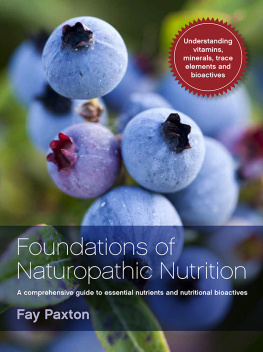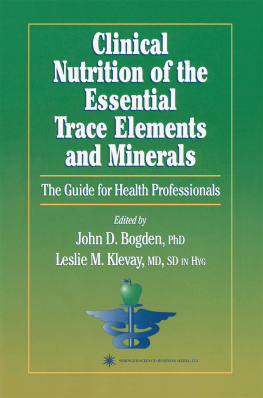
NATUROPATHY
Naturopathy is the use of natural therapies, and diet and lifestyle modifications, that aim to restore health, physiological balance and well-being, and enhance resistance to disease.
History of naturopathy
Natural methods of treating diseaseespecially physical therapies and medicines based on plant and animal extractshave been used throughout history. The development and written recording of systematic approaches to treatment is believed to have originated in the ancient Greek, Roman, Indian and Chinese cultures. The modern naturopathic movement began in Germany about 200 years ago, where natural therapists began using therapies such as hydrotherapy, hygiene, fasting, exercise, colonic irrigation, diet and sunlight exposure to restore health. Most early naturopaths practised at sanatoria, where people would stay to take the cure. The nineteenth-century German homeopath John Scheel is credited with first using the term naturopathy to represent treatments based on natural approaches.
Father Sebastian Kneipp (182197), a priest turned healer, developed a five-point approach to treatment, based on hydrotherapy, exercise, herbs, nutrition and lifestyle change, and gained fame for his revolutionary and effective health practices. Henry Lindlahr (18621924) was cured of diabetes and obesity by Father Kneipps treatments, and established a sanatorium in the United States dedicated to nature cure; he also wrote several books that popularised this approach to health. Benedict Lust was healed of tuberculosis by Father Kneipps treatments, and in 1892 settled in the United States, where he opened several health resorts and founded the first naturopathic medical school in the world, the American School of Naturopathy in New York City, in 1902. He wrote extensively about natural treatments, and also introduced America to Ayurveda (traditional Indian medicine) and Yoga. He became known as the father of naturopathy in America.
From these early beginnings, naturopathy became a worldwide movement that was first seen as an alternative to orthodox health care. Some early practitioners actively disparaged orthodox medicine and discouraged its use, but modern naturopaths view naturopathy as complementary to orthodox approaches, and believe it is possible for both approaches to work together for the good of the patient. Modern naturopathy makes use of evidence-based and traditional treatments, and emphasises prevention and patient education as well as cure.
Principles of naturopathy
The principles of naturopathy are based on the twin concepts of boosting the bodys natural vital force and removing any blockages or inhibiting factors.
The body has an innate healing power. The body has an innate ability to balance and heal itself (vital force), and naturopaths work to boost the bodys natural vitality and remove any impediments to healing.
Treatment should work with the bodys natural vital force. Naturopaths use treatments that help to balance and optimise body functions and support and enhance the vital force.
Treatment should focus on the underlying cause of the health issue. Naturopaths compile comprehensive case histories and undertake physical examinations in an effort to identify the true cause of health disorders, rather than treating the symptoms.
Treatment should encompass the whole person. In naturopathy, it is the person with a health disorder who is treated, rather than the disorder. There is no one treatment for every patient with the same disorder because treatment must be tailored to suit the individual. Before deciding on a treatment program, naturopaths investigate a patients health history, family history, diet, psychological issues, and environmental and lifestyle factors that may contribute to ill-health or increase health risk.
Blockages to vitality should be addressed. Naturopaths believe environmental, lifestyle and dietary factors can lead to a build-up of toxins in the body that contribute to inflammation, and these must be cleared for optimal health and vitality. For detoxification, the liver, kidneys, digestive tract, skin and lymph system are regarded as important targets of treatment.
Prevention is as important as cure. Naturopaths educate patients about the principles of good health, identify an individuals health risks and instigate preventive behaviours to maintain health at its optimal level. They aim to prevent minor, acute complaints from progressing to more serious or chronic conditions.
The three stages of disease
Traditional naturopaths view disease as occurring in three stages: the acute, sub-acute and chronic stages. The acute stage occurs when the body has enough vitality to attempt to resist an illness by developing a fever or acute inflammation, such as a cold, influenza or skin inflammation like eczema. Traditional naturopaths believe that suppressing the acute stage by using treatments that merely give symptom relief can lead to the development of the sub-acute stage. In the case of a respiratory disorder, this may appear as a continual or intermittent mucus discharge. The prolonged disturbance caused by the sub-acute stage may further lower the bodys vitality, and suppression of symptoms may lead to the chronic stage of disease, which is marked by destruction of tissue or gross malfunctions of body systems. Chronic inflammatory or autoimmune diseases may then result.
Retracing and the healing crisis
When treating the underlying cause of the disorder with natural therapies, these stages of disease can retrace from the chronic stage back to the acute stage during the healing process. A healing crisis, in which the patient has an acute exacerbation of the original disorder, may occur during this time, indicating that the patients vitality is now much stronger. Although symptoms flare up, the patient may still feel quite well, and the crisis usually resolves rapidly. Not all patients will show retracing or a healing crisis during their treatment.
Naturopathic practice
Naturopaths work towards improving health on all levels and use a wide range of approaches, including:
dietary and lifestyle change
exercise programs
nutritional supplements
herbal, homeopathic and flower essence remedies
detoxification programs
weight management
physical therapies, such as massage, breathing exercises, and relaxation and meditation techniques
stress management
counselling.
NUTRITION
Genes, environment, lifestyle and diet are important factors that impact on health. The diet provides essential nutrients, which are food components that are vital for normal body function but either cannot be made in the body or cannot be made in sufficient amounts to maintain good health, and therefore must be obtained from a dietary source. A lack or imbalance of essential nutrients can lead to poor health and even death if the deficiency is prolonged and severe enough. In Western countries, it is rare that a nutritional deficiency becomes life-threatening, but subtle, mild deficiencies that impair general health often go unrecognised. Even mild nutritional deficiencies can cause fatigue, reduced resistance to stress, susceptibility to illness and difficulty coping with lifes demands, and long-term poor nutrition may lead to cellular and organ dysfunction, resulting in disease.
Poor nutrition can cause a range of adverse effects in the body, including:
biochemical imbalances, such as excesses of potentially harmful substances and inadequate levels of essential substances
impaired enzyme function and inefficient energy production
impaired function of cells, organs and tissues
Next page






